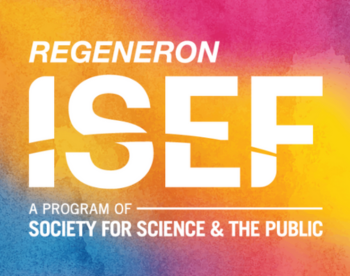30 Chemistry Research Topics for High School Students
[elementor-template id="1670"]
Chemistry is the science of exploring the fundamental nature of substances, focusing on their composition, structure, properties, and the changes they undergo. Chemists study the behavior of microscopic particles like atoms, molecules, and ions, and their interactions under different conditions through experiments and theoretical analysis. This research goes beyond laboratory settings, affecting all aspects of our lives—from the clothes we wear, the medications we take, to the electronics we use and the air we breathe.
Chemistry research has immense importance in everyday life. For instance, in the pharmaceutical field, chemists synthesize new drug molecules to combat various diseases and improve quality of life. In environmental protection, chemistry helps us understand and address pollutants, safeguarding our ecosystem. In energy, chemists work to develop efficient energy conversion materials to promote clean energy and reduce dependence on fossil fuels. In materials science, the development of new materials continues to transform our lives, from lightweight bicycles to advanced electronics, all of which rely on chemistry.
How do high school students start chemistry research?
High school students who want to start chemistry research can begin in several ways:
- Solidify foundation: Master basic knowledge like the periodic table, chemical reactions, and other key concepts.
- Laboratory skills: Learn essential experiment techniques through school chemistry labs and practice them to deepen understanding.
- Stay updated: Read simple chemistry papers and popular science books to understand the latest research trends and spark interest.
- Competitions: Participate in chemistry competitions like the Chemistry Olympiad, which boosts your experimental skills and fosters innovation.
- Find a mentor: Seek a knowledgeable chemistry teacher or researcher as a mentor for guidance.
- Hands-on projects: Solve real-world chemistry problems with small-scale research projects. Record and analyze your findings.
- Community engagement: Attend chemistry seminars or join clubs to exchange ideas with like-minded students.
By following these steps, you’ll gradually build the fundamental skills needed for chemistry research and continue to grow through the journey of discovery.
In this issue, Embark chemistry mentors selected 25 chemistry research topics across several key branches of the field. Our goal is to ignite your passion for chemistry research and provide you with a wide range of exploration ideas. We hope these topics inspire you to begin an exciting journey into the world of chemistry research!
Research Topic 1: The Process and Efficiency of Water Electrolysis
Water electrolysis is the process of breaking down water into hydrogen and oxygen, a reaction that can reveal the practical applications of electrochemical principles. High school students can explore this by measuring the current efficiency and gas yield during electrolysis, which helps them learn about fundamental electrochemical concepts and improve their skills in experiment design and data analysis. Through hands-on experience, students observe how current affects the decomposition rate of water and analyze energy conversion efficiency under different conditions. This project not only deepens their understanding of the basic chemical principles behind water electrolysis but also introduces them to energy loss and ways to enhance electrolysis efficiency.
You can explore the following topics:
- Choice and effectiveness of catalysts in water electrolysis
- Influence of electrode materials on electrolysis efficiency
- Energy conversion analysis in the electrolysis process
Research Topic 2: Acid-Base Reactions in Food
This topic investigates acid-base reactions in food and their roles in cooking and digestion. High school students can conduct experiments to measure the pH of different foods and analyze their acidic or basic components. This provides an opportunity to learn acid-base theory and improve laboratory skills. Students will explore how acidic or alkaline components affect food’s flavor and digestive process. This research helps them understand the impact of pH on food preservation and nutrient absorption.
You can explore the following topics:
4. Influence of food acidity or alkalinity on taste
5. Application of acid-base reactions in baking
6. pH changes during food digestion
Research Topic 3: Chemical Analysis of Environmental Pollutants
This topic explores the chemical composition of environmental pollutants and their impacts on environmental health. High school students can use chemical analysis methods to detect pollutants in air, water, or soil samples, gaining experience in analytical chemistry and raising environmental awareness. In this project, students use various chemical reagents and techniques to identify and quantify pollutants in environmental samples.
You can explore the following topics:
7. Detection of common atmospheric pollutants
8. Chemical analysis of harmful substances in water bodies
9. Sources and control of soil pollution
Research Topic 4: Synthesis of Polymer Materials
This topic focuses on the synthesis and properties of polymer materials. High school students can experiment with creating different types of polymers and test their physical and chemical properties, gaining a basic understanding of organic and polymer chemistry while developing their experiment design skills.
You can explore the following topics:
10. Synthesis and performance testing of thermoplastics
11. Preparation and applications of synthetic rubber
12. Degradation and environmental impact of polymers
Research Topic 5: Corrosion and Protection of Metals
This topic explores the corrosion processes of metals in various environments and methods for corrosion prevention. High school students can conduct experiments to observe metal corrosion and test the effectiveness of different protective methods. This allows them to learn the basics of metal corrosion and improve their experimental and analytical skills.
You can explore the following topics:
13. Comparison of corrosion resistance among different metals
14. Effectiveness testing of anti-corrosion coatings
15. Application of electrochemical protection methods
[elementor-template id="1677"]
Research Topic 6: The Role of Enzymes in Biochemical Reactions
This topic studies the catalytic role of enzymes in biochemical reactions and the factors influencing their activity. High school students can measure enzyme activity and analyze catalytic efficiency under various conditions, helping them understand basic enzyme principles and enhance their skills in experiment design and data analysis.
You can explore the following topics:
16. Comparison of activity across different types of enzymes
17. Effects of temperature and pH on enzyme activity
18. Applications of enzymes in industrial production
Research Topic 7: Chemical Reactions in Photosynthesis
This topic investigates the chemical reactions involved in photosynthesis and its importance in ecosystems. High school students can measure the rate of photosynthesis and analyze the impact of environmental factors on the process, gaining insight into energy conversion in nature.
You can explore the following topics:
19. Mechanisms of light energy conversion in photosynthesis
20. Comparative efficiency of photosynthesis in different plants
21. Effects of environmental factors on photosynthesis
Research Topic 8: Chemical Reactions in Pharmaceuticals
This topic examines the chemical reactions in pharmaceuticals and their therapeutic roles. High school students can analyze the chemical composition of drugs and investigate their metabolic processes in the body, learning about medicinal chemistry and enhancing their experimental skills.
You can explore the following topics:
22. Analysis and identification of drug components
23. Study of metabolic processes of pharmaceuticals
Research Topic 9: Chemical Reactions in Combustion
This topic explores combustion reactions and their environmental impact. High school students can measure the composition of combustion products and compare the efficiency of different fuels, gaining a deeper understanding of energy production and environmental chemistry.
You can explore the following topics:
24. Analysis of combustion products
25. Comparison of combustion efficiency among different fuels
You can view more Chemistry research topics for high school students here.
Another Option - Embark Exploration Program
Embark, established in 2016, is an educational institution focused on providing customized scientific research training for young people. The core team members are graduates from top universities in the United States. Embark has over 3,000 mentors from prestigious institutions such as the Ivy League, MIT, Caltech, Johns Hopkins University, and Carnegie Mellon University.
Embark offers personalized one-on-one research guidance, tailoring research topics to the interests of each student. Embark helps students systematically develop research skills, build a solid research framework, integrate research with real-world applications, understand the value of research, and enhance their problem-solving abilities. All of this contributes to strengthening their college applications.
For more information, please visit the Embark Exploration Program. If you have any questions or need further information, feel free to contact us. We would be happy to assist you and discuss collaboration opportunities.
[elementor-template id="1682"]



